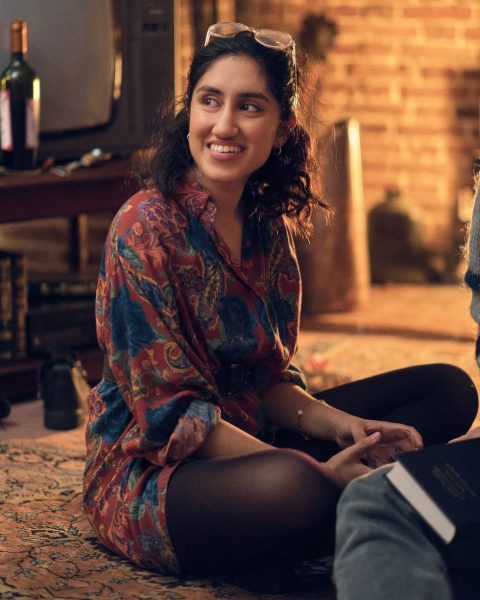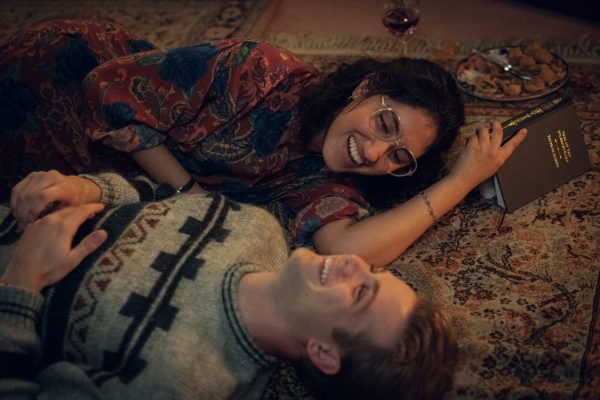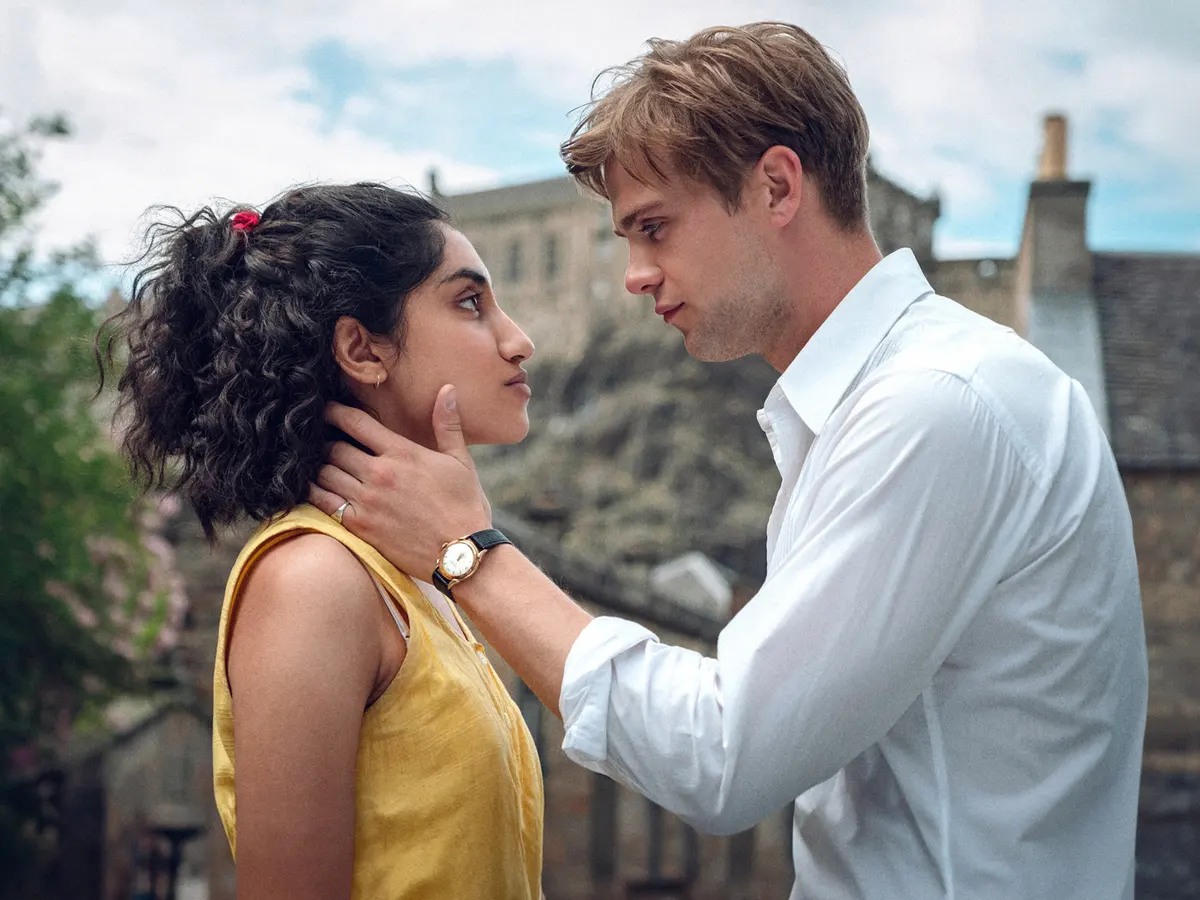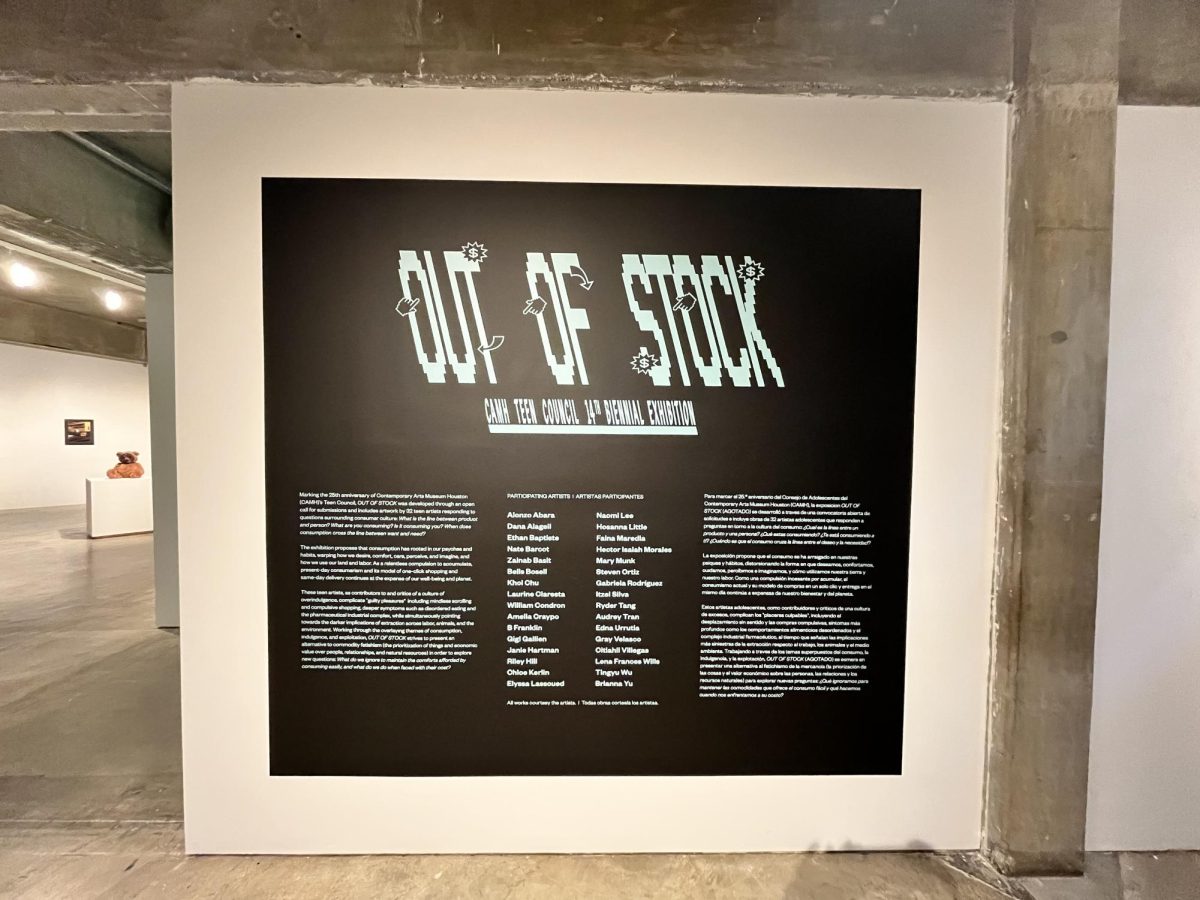DISCLAIMER: This review contains major spoilers for the Netflix series “One Day.”
They say time heals a broken heart, but every time we encounter a new adaptation of “One Day” we’re once again crying on our bathroom floors.
We got home from school on February 8th at 5 PM ready to slave away at our homework, until we received a Netflix notification about a new TV series called “One Day.” When we realized it was another adaptation of David Nicholls’ 2009 novel, we immediately cleared our schedules.
Set in 1988, “One Day” follows Emma Morley (Ambika Mod) and Dexter Mayhew (Leo Woodall), two recent graduates from Edinburgh University who are still trying to find their purpose in life. Instead, they find each other: at Edinburgh’s college graduates’ party. Emma is clever and bookish with a northern sense of humor and Dexter is charming and laidback, with an effortless allure that wins him girls, money and fame. However different, they instantly click, each mutually intrigued by the other. They drunkenly head back to Emma’s place where they almost have a one-night stand but instead end up talking the night away, asking each other questions about anything and everything.
But after this night Emma and Dexter drift in different directions in life but they keep in touch, usually with them seeing each other once a year or so, and each of their lives drastically changing at the same time. Among its several meanings, the title, “One Day” explains why the story’s timeline is a yearly time jump between July 15, the day they met. Despite seeing each other so rarely, they wrote and called each other constantly, relying on each other in a way that both of them seemed hesitant to admit. We see how Emma and Dexter evolve over time, how they grow close, how they grow apart, and how they always seem to come back together.

But that beautiful story is common to both the book and the movie. So what made the show so much better?
While the movie made us sob and Anne Hathaway and Jim Sturgess had phenomenal performances, the movie often lacked the depth that we found in the book. Somehow, this television series not only reciprocated that depth but intensified it.
We think that a series is the perfect format for this love story. Most episodes focus on a singular day and it gives room for characters and plot lines to be further developed. The series went into details that the film didn’t even acknowledge, such as Em’s dissatisfaction with her professional and romantic lives and the extent of the damage that Dexter’s addiction had on his life.
A line that stuck with us from the film and book was when Emma and Dexter had a huge fight after he was being insensitive and arrogant and she said, “Dexter, I love you so much… I just don’t like you anymore.”
While the series left out this iconic line, we think that it did a much better job at showing Emma’s true thoughts and displaying her growth in becoming a more assertive and outspoken character during this scene, unlike the film.

Speaking of Emma, one of our favorite changes was casting her as an Indian woman. Ambika Mod’s Emma is prickly, vulnerable, devoted and relentlessly sarcastic. Growing up as women of color, we watched romcoms and fell for this idea that women who look like us aren’t the romantic leads, women who look like us aren’t the ones that male leads fall in love with. In this adaptation, Mod managed to both showcase that she too struggled with this false narrative and also learned to love herself enough to know she was worth more than some guy’s possible love.
One of the reasons she struggled so much with learning that she was worthy of love was because Dexter took so long to make her feel like she was. She even acknowledges his tardiness saying “I was actually quite gorgeous in my twenties, though I didn’t appreciate it at the time.” Dexter responds with “I did.” Emma says, “Sometimes you did. Sometimes you didn’t.” This scene was completely new and we feel it added a new layer of depth to the story.
 It’s a tale as old as time, where there’s a lost boy, a Wendy is waiting for him to grow up. It took over a decade for Dexter to finally commit to Emma, and despite his best intentions, we can all see that it was when he was at his worst and she was at her best. We think the creators of the series did a much better job at establishing how for a long time Emma was “twinkling” for Dex, despite her efforts, and how all of this pining messed with her mind.
It’s a tale as old as time, where there’s a lost boy, a Wendy is waiting for him to grow up. It took over a decade for Dexter to finally commit to Emma, and despite his best intentions, we can all see that it was when he was at his worst and she was at her best. We think the creators of the series did a much better job at establishing how for a long time Emma was “twinkling” for Dex, despite her efforts, and how all of this pining messed with her mind.
Then comes the part that left us with our mouths wide open all three times we got to it: Emma’s death. It’s a plot twist that shocked us completely and left us sobbing, even though we already knew the ending.

In the book and movie, Emma’s death is centered around Dexter, her last thoughts being “He’ll wonder where I am, she thinks. He’ll worry.” But the Netflix series focused mainly on her life, displaying flashes of her childhood and memories in her last moments. We loved this change because it showed how Emma didn’t revolve her life around Dexter. And thank god for that, because Emma Morley was an extraordinary person all on her own.
As we said, each of these adaptations wrecked us. But the series adaptation made us cry while teaching us a valuable lesson: we are all quite gorgeous, there’s no need to wait for someone else to realize that as well. Life isn’t long enough to spend so much of it saying hesitant phrases like “What if?” or “One day.”










